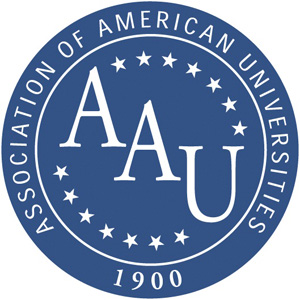NEW BRUNSWICK, N.J. – The Association of American Universities (AAU), an association of 62 leading research universities, including Rutgers University-New Brunswick, today published a data-rich report on the actions its members are taking to prevent and respond to sexual assault and sexual misconduct on their campuses. The report, based on the results of a new survey, shows that AAU universities are making significant improvements and devoting substantial resources, to their efforts to address the issue.
In its report, Combating Sexual Assault and Misconduct, the AAU cites Rutgers University-New Brunswick for its contributions to the overall effort to protect students against sexual assault and for its work on its own campus.
“We must as an institution adopt a culture of commitment to end sexual violence on campus – a culture of compliance is not enough,” said Rutgers-New Brunswick Chancellor Richard L. Edwards. “This report shows that Rutgers has made a commitment and also that, like us, our peer institutions intend to pursue an end to sexual violence on campus.”
Fifty-five of the 62 AAU member institutions took part in the survey. All 55 reported they had surveyed students on matters relating to sexual assault at least once since 2013, and all have changed or are changing their education and training for students and faculty concerning sexual assault. Forty-eight reported that their surveys had stimulated new conversations, or changed continuing conversations, about sexual assault and violence on their campuses. Forty-six have developed new programs, education or interventions for specific student populations.Many of the initiatives the AAU institutions report taking are among those recommended by Rutgers researchers in 2015, after conducting a “campus climate model survey” to assess and combat sexual violence. That survey was initially developed in the Office on Violence Against Women in the U.S. Department of Justice. Rutgers University-New Brunswick piloted the study at the request of the White House Task Force to Protect Students from Sexual Assault. In their report to the Task Force accompanying the survey, Rutgers researchers suggested combining such surveys with other forms of data collection, such as focus groups; using surveys to raise awareness of sexual violence and the resources available to combat it; creating forums to discuss sexual violence; and using survey results to implement campus-wide action plans.
The AAU report released today cites Rutgers University-New Brunswick for having taken all those steps. The university has modified existing programs dealing with violence and abuse to address sexual assault specifically. It has conducted 21 focus groups about sexual assault and violence. Rutgers’ Center on Violence Against Women and Children has developed an assessment tool, the Level of Exposure Scale to gauge the effectiveness of efforts to prevent and address sexual assault.
This report follows up on the AAU Campus Climate Survey on Sexual Assault and Sexual Misconduct, a landmark comprehensive campus climate survey conducted by AAU among150,000 students in 2015.
Felicia McGinty, vice chancellor of student affairs, said the university would continue to encourage victims to report incidents and bystanders to intervene when they witness incidents in which sexual assault or sexual misconduct seems a potential outcome.
“Sexual violence is a broad issue that impacts all members of our campus community,” said McGinty. “Prevention, education and culture change are key goals in our effort to end sexual violence. We are working diligently to educate students about consent, the dynamics of healthy relationships and empowering them to be active and engaged bystanders.”



